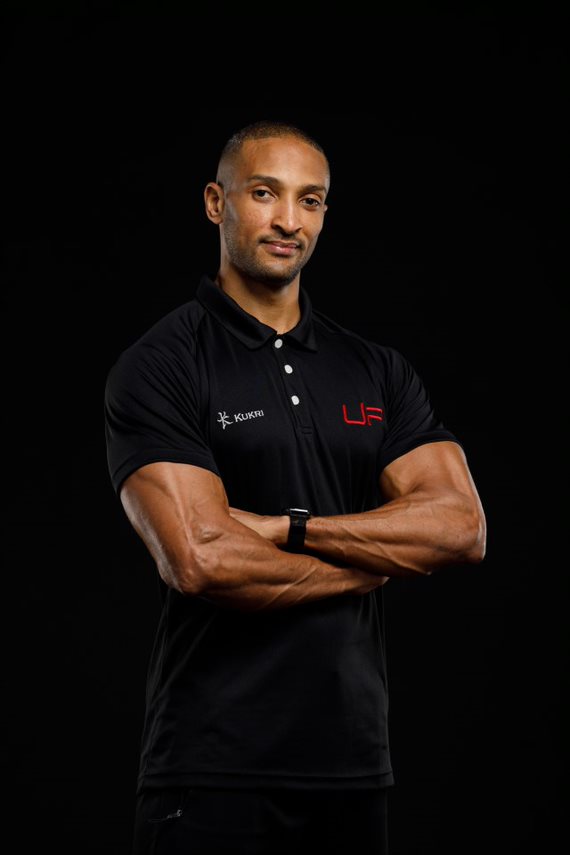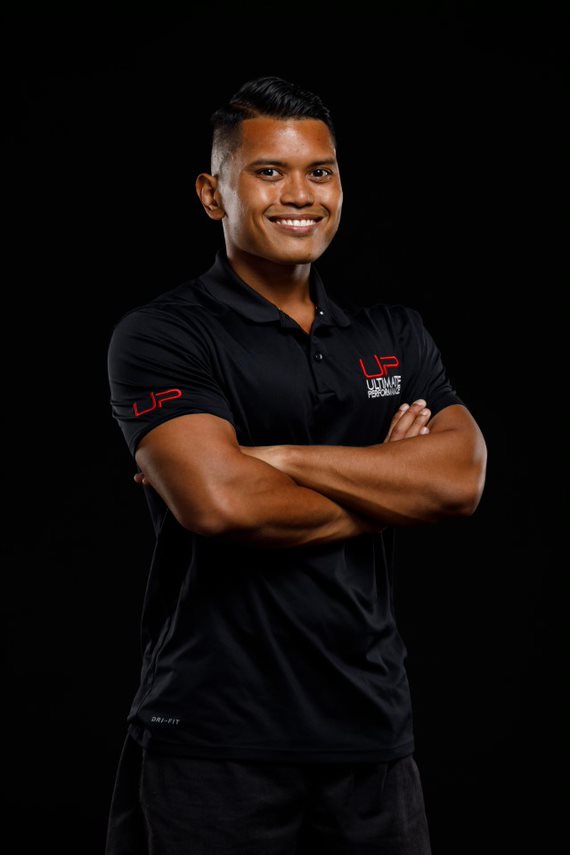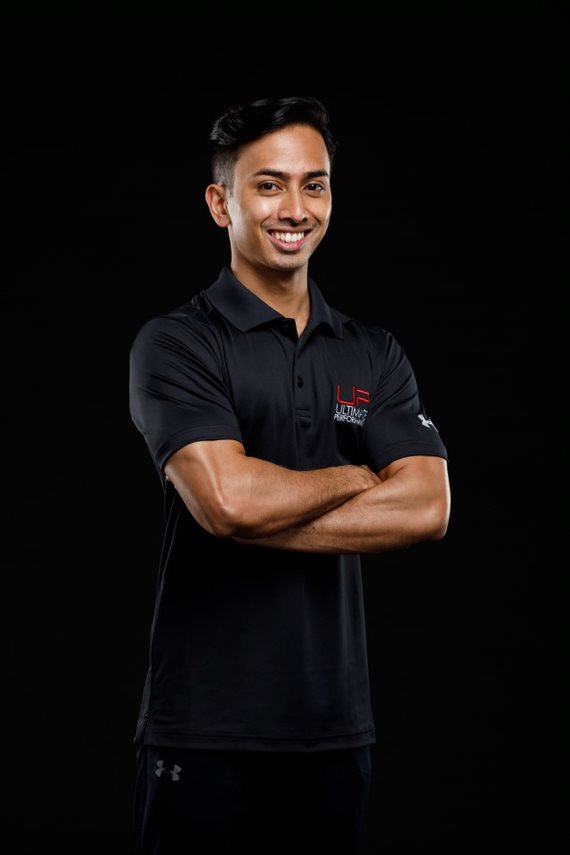Ramadan Training And Diet Tips For Muslim Personal Trainers
Ramadan is a difficult time for many Muslims in the world when it comes maintaining their health and fitness. You do not have to completely abandon your fitness and health goals.
Here is a guide that covers all the advice and strategies we offer to our clients during Ramadan, including diet, exercise, sleeping, and much more.
We work with hundreds of Muslim customers around the world to ensure they are fit, healthy, and ready to continue progressing towards their goals. Our Muslim trainers observe Ramadan with their clients.
You can read about their personal experiences with training, nutrition, meal planning, and sleeping while fasting.
Peter – Ultimate Performance Personal Trainer

What time are you up in the morning and what food do you have during Ramadan.
I get up at 4:25 in the morning to prepare and eat before prayer, which is at 5:40.
I don’t count calories. I just make sure to get enough protein, carbohydrates, and healthy fats.
Depending on how much time is left, I either rest or get straight to work.
How can you keep hydrated during a fast?
Add 3-4 pinches Himalayan Salt to your water in the morning. In addition, I avoid being in the sun for too long or exercising in the middle hours of the day to prevent myself from becoming dehydrated.

How can you maintain enough energy when you are on your feet for the majority of the day as a personal trainer?
Due to the lower levels of glycogen, the first 10 days can be very tiring. To help the body adjust quickly to this period, it is a good idea to start reducing calories a couple of weeks in advance.
Two weeks before, remove the snacks in between meals. One week before, remove the breakfast and dinner. So, the body will adapt and we can gradually reduce the calories. I find that eating breakfast keeps me satisfied until at least 3pm. Over time, this habit becomes manageable.
Has your training changed during Ramadan?
I used to do 5×5 before Ramadan. This is 5×5 repetitions of three compound exercises (push pull-legs, or push pull and one hip-hinge) and three isolated movements for 12 Reps.
During Ramadan I can’t maintain the same level of intensity. I train to my schedule and ideally, before the 5:30 pm break fast. I train my entire body for maintenance. My maximum reps for 10 repetitions is around 60-70%.

What are your tips on training or mentality during fasting?
You need to be smart and aware of your capabilities. Training is not a priority for me during this time. It gives me a chance to recover.
If I could give some advice to my clients, it would be this:
- You should not aim to fail or go beyond your limits during training.
- During this time, focus on improving your technique and executing the exercises.
Train very early in morning, after your first meal. Or train late at night before sunset.
What do you have when you break the fast?
I normally eat two meals a day, one for lunch and another for dinner. I avoid eating processed foods or any other food with added sugar, and I hydrate as much as I can.
Hariz – Ultimate Performance Personal Trainer

What time are you up in the morning during Ramadan? And what do you have for breakfast?
I usually wake up at five am and have 250g low-fat Greek yogurt with U.P. Chocotrients. As I feel low on energy, I might look to make overnight ‘Proats (protein and oatmeal)’ instead. As I have morning sessions I begin to prepare for work. I go back to sleep on the weekends.
How can you keep hydrated during a fast?
To hydrate, I drink about 1-1.5 litres per day. This makes me feel better. I drink 500ml water after I have eaten my breakfast and another 1.5-2 litres of water just before going to bed.

How can you maintain enough energy when you are on your feet for the majority of the day as a personal trainer?
I find it very difficult, especially since I no longer have my daily coffee breaks. It is difficult to go from drinking 3-4 cups of coffee a day, to none. I chose to give up coffee in Ramadan to reduce my caffeine tolerance. It has made me more aware of the importance of a good night’s sleep. To have the energy I need to get through the day, I must sleep at least seven hours.
Has your training changed during Ramadan?
To ensure I have enough energy to lift, I train in the mornings and immediately after breakfast. To ensure that I have the energy to lift, I train in the mornings or right after breakfast. If I cannot train during these times and must train at a time that is less convenient, I continue to train as normal, but I manage my expectations about what I can lift. I fail a lot earlier than usual.
What are your tips on training or mentality during fasting?
Be realistic about your expectations. You may not be feeling great, but you should still do your best to get an exercise in. To maximise performance, train close to meals.
What do you have when you break the fast?
I drink a lot of water and eat a lot of fruit. For carbs, I eat white rice and lots of protein (usually, chicken breast). For fibre, I also eat a lot of vegetables. If you are eating with a large family who enjoys local cuisine, traditional snacks and kuehs for breakfast, it can be difficult to maintain your diet. Prioritise your staples first before venturing out to try something new.
Zaki – Ultimate Performance Personal Trainer

What time are you up in the morning during Ramadan? And what do you have for breakfast?
My wife and I will have breakfast at 5am. I’ve been eating the following as my breakfast:
- Three sandwiches made with chicken, beef, or pepperoni, and ham. Also, they include sliced eggs, sliced swiss cheese, and sliced ham.
- Three dates
- One cup of water
- 1 serving of Protein Shake
How can you keep hydrated during a fast?
I will drink a cup or two of water with most of my meals. I have four meals, including the dawn and pre-dawn meals.
How can you maintain enough energy when you are on your feet for the majority of the day as a personal trainer?
The pre-dawn breakfast is my favorite meal because it gives me the energy I need to work out. Quality sleep is important to me so I can focus.
Has your training changed during Ramadan?
Before Ramadan, I trained five times per week with a typical “bro split” with rep ranges of 8-15 reps and 3-4 sets.
During Ramadan I reduced the frequency of my training to three times per week. I did a push-pull leg split, with an rep range between 6-8 reps and 1-2 sets. The first exercise is also given a more thorough warm-up.
What are your tips on training or mentality during fasting?
Train as close as possible to your meals, and keep active.
What do you have when you break the fast?
Training days :
- Three scoops of whey proteins
- 1 banana
- Three dates
- I eat 1 sandwich as a pre-dawn breakfast (depends).
- After-workout training days:
- 500g chicken/fish fillet
- 200g rice
Non-training days:
- What my wife cooks, or an outside meal
Saydul – Ultimate Performance Personal Trainer

What time are you up in the morning during Ramadan? And what do you have for breakfast?
Every day, I wake up at 4:30am to prepare the Suhoor. Me, I like to eat rice, vegetables and meats, such as chicken breast. After my meal, I will also drink two glasses water. It is important to stay hydrated during Suhoor. We get tired due to a lack in electrolytes. This will affect cell communication, and result in a low performance. It can also affect the body’s metabolic and cognitive functions.
How can you keep hydrated during a fast?
I will also drink one glass of bottled water every 30 minutes before bedtime. I will also have a glass of water 30 minutes before bedtime.
How can you maintain enough energy when you are on your feet for the majority of the day as a personal tra
 iner?
iner?
To ensure that my energy levels are sufficient throughout the day, I choose carbohydrates with a slow or moderate digestion rate, such as brown rice, beans, or lentils.
Has your training changed during Ramadan?
In terms of the main training time, I’ll either train after Suhoor (iftar) or an hour before. As for the program, I’ll switch to a weight-based training program that has a low work/rest ratio. There will be two main lifts and two accessories. And three sets of each exercise. It is important to manage training stress and metabolic stresses by creating a training program that fits your current nutrition, caloric intake and macronutrients partitioning.
What are your tips on training or mentality during fasting?
1. You need to sleep early in order to get up for Suhoor.
2. Rehydrate yourself during the meal window.
3. Plan your food intake (knowing what, when and how much you should eat).
4. Remember to only buy the food you need when buying for Iftar. Don’t buy more than necessary because we often buy too much when we are hungry. And lastly, practice moderation during Ramadan. The Prophet (PBUH), said that a Muslim should “eat and drink moderately, with one-third of the stomach reserved for food, another third for drink, and the third for breath.”
What do you have when you break the fast?
After drinking water, I’ll have one or two dates. Dates contain simple carbohydrates that replenish my glycogen stores. Meat, vegetables and complex carbohydrates make up the main meal. To make Ramadan more fulfilling, I’ve planned my meals using different recipes.